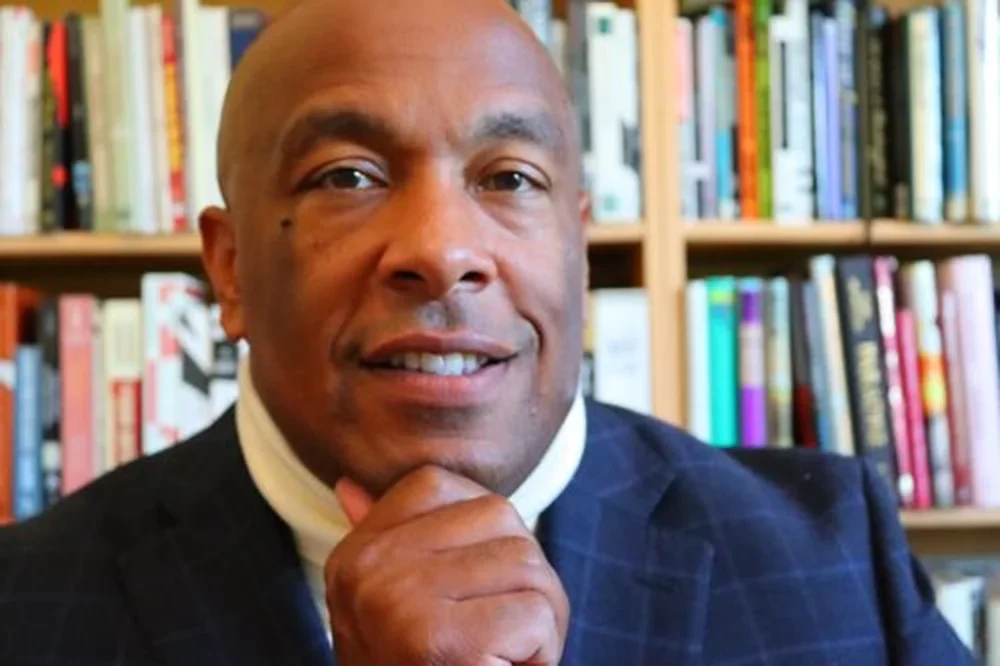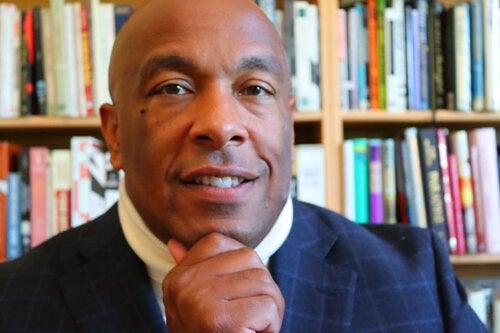
 Christopher Freeburg, a professor of English at UIUC, is a scholar of African American literature, Black culture, and the American novel. He has published several books, including “Counterlife: Slavery after Resistance and Social Death,” and was recently named a University Scholar. The College of LAS recently sat down with him to learn about the African American writers that have had the greatest impact on him.
Christopher Freeburg, a professor of English at UIUC, is a scholar of African American literature, Black culture, and the American novel. He has published several books, including “Counterlife: Slavery after Resistance and Social Death,” and was recently named a University Scholar. The College of LAS recently sat down with him to learn about the African American writers that have had the greatest impact on him.
Who are the African American authors that have had the biggest impact on you?
The books that I go back to that continue to challenge me—and I promise, if you have not read them in the last 5-10 years, will challenge you in every way you can imagine—are: Zora Neale Hurston’s “Their Eyes Were Watching God,” James Baldwin’s “Go Tell it on the Mountain,” Frederick Douglass’ “Narrative of the Life,” Richard Wright’s “Native Son,” and Lorraine Hansberry’s “A Raisin in the Sun” (in film, play, or book).
Although there’s been a resurgence in interest in African American literature recently, are there books or authors that come to mind that still don’t get the credit they deserve?
There are countless African American writers or works by famous authors, such as Toni Morrison, who do not get the credit they deserve. In fact, there are entire genres of writing, like poetry, that encourage listening, speaking, and community that we could always read more. I’m thinking of the fascinating lyricism of my colleague Janice Harrington in her book “Primitive: The Art and Life of Horace H. Pippin,” or “Leadbelly” by Tyehimba Jess.
While I can see fields of too many writers and promising works left by the wayside, what I’ve found most striking as of late is rereading books, known classics, which I haven’t read in so long that, upon rereading, I’d swear I’d never read it.
Is there one book, a classic as you called it, that you’ve gone back to and re-read recently?
A friend of mine who is familiar with my scholarly writing had encouraged me to read Toni Morrison’s “Song of Solomon” again. I said, “of course, what a great idea!” I never did it. Until recently. I actually read it again and it was so powerful and relatable to my work and current political discussions that I demanded that my mother and sister read it again too. They resisted – both of them insisted they’d already read it and it wasn’t worth their time. Eventually they took my advice on faith and they read the book, too. For the next month we had the most profound conversations about African American life, family, American racial dynamics, and what kinds of writing really helps a reader connect to characters.
What I’m trying to say is that even well-known classic books, after life has changed and you’re inhabiting a new moment of history, can be a completely new experience. The last time I read “Song of Solomon” I was single and in my 20s and now I’m married with teenagers (and became an uncle) and my world has completely changed. My life isn’t the same and I see the book with new eyes.
What role can African American literature play in helping people better understand African American history?
We can discover so much about ourselves and think deeply about how we’ve grown or failed to grow by what we’ve missed, don’t remember, and couldn’t see when we first read a book. In my re-reading of Morrison’s “Song of Solomon” and in my discussions of it with my family, I felt absorbed by the very idea that art enriches our social lives, political outlooks, and the spiritual landscapes of our humanity. Coming together to discuss the art forged through racial tragedy and triumph is one more opportunity to dig a little deeper and to have more courage to face the darkest moments of our past and present. There are no magical solutions or silver bullets here but taking a walk with Hurston or Hansberry can’t do anything but point us in the right direction.